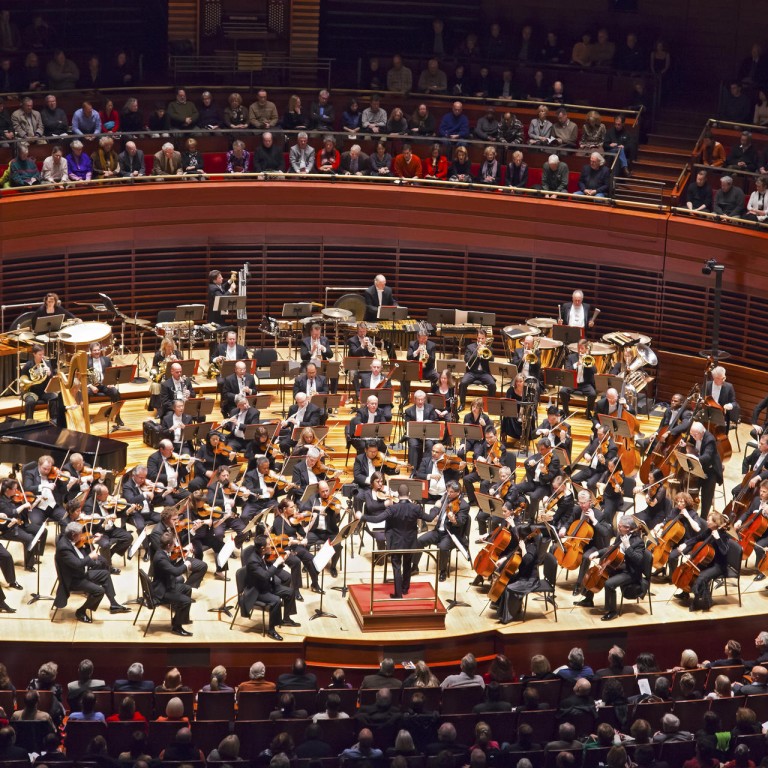
Yannick Nézet-Séguin believes in the full engagement of his Philadelphia Orchestra
The Philadelphia Orchestra's conductor Yannick Nézet-Séguin believes every player and every instrument should be fully engaged, writes Richard James Havis
The strings are the thing for music director and conductor Yannick Nézet-Séguin. That's because the Philadelphia Orchestra, which performs at the Venetian Theatre in Macau on May 30 and 31, is well known for its sonorous and rich string section - something that partially results from the players' use of rare vintage instruments such as Stradivari and Guarneri violins.
"The Philadelphia Orchestra is one of the very few orchestras in the world nowadays which has a recognisable sound," says Nézet-Séguin, who splits his time between Philadelphia in the US and the Rotterdam Philharmonic Orchestra in the Netherlands. "It's something we are fortunate to have cultivated throughout the years; there is a depth, a richness, and a generosity to the sound."
An orchestra is 100 individuals who have the possibility and power to be united in purpose, and yet still give 100 per cent individually
At 39, the French-Canadian Nézet-Séguin is one of the stars of the world of classical music. Known for his energy on and off the podium, he has conducted the London Philharmonic Orchestra, New York's Metropolitan Opera Orchestra, as well as the Rotterdam and Philadelphia orchestras. Critics note the youthful vigour that he injects into his interpretations of the classics; orchestra members note his approachable and self-effacing manner in a business that generally attracts those with super-sized egos.
In Philadelphia, where he officially took on the title of music director in 2012 - he's being phased in over a three-year period, due to his other commitments - Nézet-Séguin has been responsible for helping to turn around the fortunes of the orchestra, musically and financially. "The ensemble … has never sounded better," Anthony Tommasini wrote in a review last year.

Nézet-Séguin is also principal conductor of the Rotterdam Philharmonic Orchestra, where he is contracted to remain until next year. The workload of dual posts is not a problem, he says. "God has given me more energy than average, and I try to take good care of that energy so it stays for a long time."
He does get tired but works hard to keep fatigue at bay: playing music successfully requires a performer to be fully alert, he says. "Music is very much the electricity of living the moment. If it is not fully engaged, it doesn't mean anything. If I put less energy into what I am doing, how can I expect the musicians to give 100 per cent? I always think, I will do this - and then I will sleep!" It's important, he says, to transmit this energy to the orchestra.
Nézet-Séguin, who trained as a pianist, is a little at odds with the conventional wisdom of how to structure an orchestral sound. To him, the orchestra is not a hierarchy where some instruments live in the background so that others can take the limelight. He expects everyone to give their all at every moment.
"An orchestra is 100 individuals who have the possibility and power to be united in purpose, and yet still give 100 per cent individually," the conductor says. "If everyone gives their all, it multiplies into something much richer."
Much has been made of Nézet-Séguin's relative youth for a conductor of his stature, and he admits his lack of years does make a difference in the way that he interprets a piece of music. Age brings experience and knowledge of a musical work, he says, but the physical energy of youth injects a kind of unfettered exuberance. "With age, the energy becomes more focused, and it's condensed into smaller gestures. It becomes more to do with the mind," he says. "Conductors in the final stages of their career can generate great power from their presence and concentration. A younger person has to use other means to achieve the same thing. There are stages in the development of every musician, and that is true of a conductor, too. Age or youth will bring a different colour to the piece being performed; it's not better or worse, it's just different," he says.

The Venetian Macao concerts are part of a tour that takes in Beijing, Shanghai and Shenzhen, among other cities. The orchestra played in China in 2012 and 2013 - it first performed there in 1973 - but this is Nézet-Séguin's first visit with it.
Works by Mozart, Dvorak, Smetana and Tchaikovsky are on the bill for May 30. The following night features the Philadelphia Orchestra in concert with the Macao Orchestra. Nézet-Séguin will conduct Tchaikovsky's Symphony No6, while Lu Jia will conduct Beethoven's Symphony No7.
"Mozart's Symphony No41 doesn't use the full orchestra - it's smaller due to the nature of the piece," Nézet-Séguin says. "We have been working on this to give it the [Philadelphia] sound while retaining the style of Mozart, which is classical and elegant. The Dvorak and Smetana have always been a calling card for the orchestra as they show the way it can sing."
The second concert is a side-by-side with the Macao Orchestra. "This sets us apart from the other orchestras that visit China. We want to grow roots there that go beyond just performing a concert."
